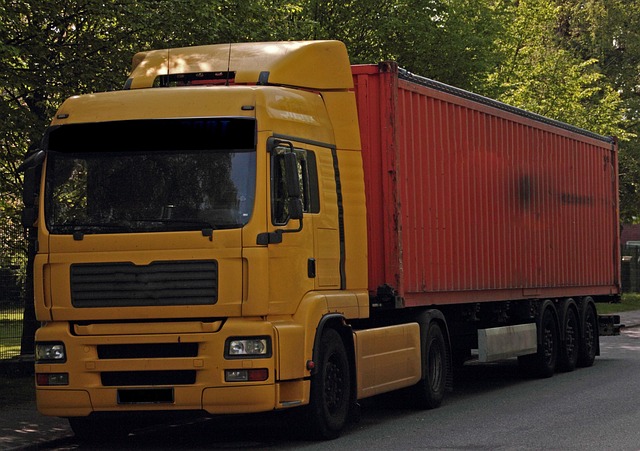Category: Commercial Dumpster Allen TX
Commercial Dumpster Allen TX: A Comprehensive Overview
Introduction
Welcome to an in-depth exploration of the world of Commercial Dumpster Allen TX—a dynamic and evolving sector that plays a critical role in modern waste management and environmental sustainability. This article aims to provide an authoritative guide, delving into every facet of this industry, from its foundational elements to cutting-edge innovations. By the end, readers will gain a comprehensive understanding of the significance, complexities, and future potential of Commercial Dumpster Allen TX within both local and global contexts.
Understanding Commercial Dumpster Allen TX: Unpacking the Concept
Definition: Commercial Dumpster Allen TX refers to a specialized service that involves the collection, transportation, and disposal or recycling of waste generated by commercial enterprises, industrial facilities, and construction sites. It encompasses various types of dumpsters designed for different waste streams, ensuring efficient and responsible waste management.
Core Components:
- Dumpster Types: These include roll-off containers for temporary storage, front-end loaders for loading, and specialized bins for specific wastes like recyclables or hazardous materials.
- Waste Collection: Involves scheduled pick-ups and drop-offs, often tailored to clients’ needs, utilizing a fleet of vehicles equipped with advanced lifting mechanisms.
- Disposal and Recycling: Properly managing waste through facilities that facilitate recycling, composting, or safe disposal, ensuring minimal environmental impact.
Historical Context: The concept of commercial dumpster services has evolved significantly over the past century. Initially, waste management was largely unstructured, with local governments handling basic collection. However, increasing urbanization and industrial growth led to the emergence of specialized companies addressing the growing need for efficient waste handling. Today, Commercial Dumpster Allen TX is a well-regulated industry, with companies operating under strict environmental guidelines.
Significance: This sector is vital for several reasons:
- Environmental Protection: Responsible waste management prevents pollution, conserves resources, and reduces the impact of disposal on ecosystems.
- Business Efficiency: It allows commercial entities to focus on their core operations by providing a hassle-free solution for waste handling.
- Public Health: Proper disposal and recycling mitigate health risks associated with unsafe waste management practices.
Global Impact and Trends: A World-Wide Revolution
International Influence: Commercial Dumpster services have spread globally, adapting to diverse cultural and environmental contexts. The global waste management market is projected to reach $246.7 billion by 2027, indicating a significant demand for efficient waste handling solutions.
Regional Trends:
- North America: Known for its stringent environmental regulations, the region leads in recycling rates, with companies adopting advanced technologies like smart sensors for optimal dumpster utilization.
- Europe: Striving for a circular economy, European countries have implemented strict waste segregation and recycling mandates, influencing commercial practices.
- Asia Pacific: Rapid urbanization drives the need for innovative waste management solutions, with a growing focus on sustainable practices.
Global Best Practices:
- Recycling Innovation: Some cities worldwide are experimenting with “zero-waste” initiatives, where advanced recycling technologies and source separation achieve high diversion rates.
- Smart City Integration: Dumpster services are increasingly linked to city infrastructure, utilizing IoT (Internet of Things) for real-time monitoring and efficient route optimization.
Economic Considerations: Market Dynamics and Opportunities
Market Analysis: The Commercial Dumpster industry is a significant contributor to the global economy, with varying revenue streams depending on regional factors:
| Region | Revenue Streams | Average Annual Growth Rate (2020-2025) |
|---|---|---|
| North America | Recycling services, specialized waste management | 4.2% |
| Europe | Commercial collection, industrial waste solutions | 3.8% |
| Asia Pacific | Construction waste management, e-waste recycling | 5.6% |
Investment Patterns:
- Private Equity: Large private equity firms invest in commercial dumpster companies, leveraging their expertise to improve operational efficiency and expand market share.
- Public-Private Partnerships: Governments partner with private entities for waste management infrastructure development, fostering sustainable practices.
Economic Impact:
- Job Creation: The industry employs a substantial workforce, ranging from drivers and collectors to operations managers and specialists in recycling technologies.
- Local Business Growth: Commercial dumpster services support local businesses by providing essential waste management solutions, fostering economic development.
Technological Advancements: Driving Innovation Forward
Smart Dumpsters: One of the most transformative innovations is the integration of smart technology into dumpsters. These containers use sensors to monitor fill levels, optimize collection routes, and provide real-time data on waste generation patterns. This technology enhances operational efficiency and reduces environmental impact.
Autonomous Collection Vehicles: Self-driving trucks and drones are being explored for waste collection, promising increased safety, reduced labor costs, and improved accessibility in tight urban spaces.
Advanced Recycling Technologies:
- Material Recovery Facilities (MRFs): These facilities employ advanced sorting technologies to separate recyclables with high precision, ensuring higher quality recycled materials.
- Chemical Recycling: Emerging methods allow for the breakdown of complex waste streams into raw materials, offering a sustainable alternative to traditional recycling.
Digital Platforms and Software:
- Waste Management Apps: Mobile applications enable clients to schedule collections, track dumpster locations, and receive real-time updates on service status.
- Analytics Software: Advanced analytics help companies optimize routes, predict waste generation trends, and make data-driven decisions.
Policy and Regulation: Navigating the Legal Landscape
International Agreements: Global initiatives like the Paris Agreement and UN Sustainable Development Goals influence waste management policies worldwide, pushing for more sustainable practices.
Regional Regulations:
- US (EPA): The Environmental Protection Agency sets standards for waste management, including guidelines for safe disposal and recycling practices.
- EU (Waste Framework Directive): This directive promotes a circular economy, mandating member states to achieve specific recycling and diversion rates.
- China (National Solid Waste Management Plan): China’s plan focuses on source separation, public participation, and advanced treatment technologies.
Local Ordinances: Cities often have unique regulations regarding waste management, especially in densely populated areas, which may include restrictions on certain waste types and requirements for recycling programs.
Compliance and Enforcement: Strict penalties are imposed for non-compliance with environmental laws, ensuring companies adhere to regulations and maintain high standards of responsibility.
Challenges and Criticisms: Overcoming Obstacles
Main Challenges:
- Increasing Waste Volumes: Global waste generation rates outpace recycling efforts, putting pressure on existing infrastructure.
- Resource Scarcity: The demand for raw materials exceeds supply, impacting the availability of resources for recycling.
- Public Awareness and Education: Lack of knowledge about proper waste segregation and recycling practices hinders progress towards sustainability goals.
Criticisms and Solutions:
- Environmental Impact: Critics argue that some waste management practices contribute to pollution. To address this, companies should embrace eco-friendly technologies and promote sustainable disposal methods.
- Cost Concerns: Commercial dumpster services can be expensive. Implementing efficient systems and encouraging public participation in recycling programs can help mitigate costs.
- Community Engagement: Local communities may resist dumpster placement due to aesthetic or health concerns. Transparent communication and community involvement are key to overcoming these issues.
Strategic Solutions:
- Education and Awareness Campaigns: Collaborate with local schools, community groups, and government agencies to educate citizens about sustainable waste practices.
- Incentivize Recycling: Offer discounts or rewards to customers who recycle responsibly, promoting a culture of sustainability.
- Research and Development: Invest in R&D to develop innovative technologies that enhance recycling efficiency and reduce environmental impact.
Case Studies: Real-World Success Stories
Case 1: Smart City Dumpster Program (Dallas, TX):
Dallas implemented a city-wide dumpster management system integrated with IoT technology. This program optimized collection routes, reduced traffic congestion, and provided real-time data on waste levels. The result was a 20% decrease in operating costs and a 15% increase in recycling rates within the first year.
Case 2: Industrial Waste Recycling Facility (Berlin, Germany):
A German company developed a state-of-the-art facility that processes industrial waste from various sectors. Using advanced separation technologies, they achieve high recycling rates for plastics, metals, and chemicals, significantly reducing the environmental footprint of manufacturing processes.
Case 3: Community-Based Recycling Initiative (Tokyo, Japan):
Tokyo’s “Waste to Energy” program involves community participation in recycling efforts. Residents are encouraged to separate organic waste, which is then processed into biogas for energy generation. This model not only reduces landfill waste but also engages the community in sustainable practices.
Future Prospects: Looking Ahead
Emerging Trends:
- Waste-to-Energy Technologies: Advanced combustion and conversion technologies will play a larger role in waste management, providing alternative energy sources while reducing environmental impact.
- Circular Economy Growth: The circular economy concept is expected to gain global traction, influencing business models and consumer preferences.
- Data Analytics Integration: AI and machine learning will further enhance decision-making processes, optimizing collection routes, and predicting waste patterns.
Potential Growth Areas:
- Urban Waste Management: With urbanization increasing, efficient waste management in densely populated areas will be a key focus, requiring innovative solutions for compact, sustainable disposal.
- E-waste Recycling: The growing electronic waste problem demands advanced recycling technologies to handle complex e-waste streams responsibly.
- International Collaboration: Cross-border partnerships and knowledge sharing will drive global best practices, fostering a more sustainable waste management industry.
Strategic Considerations:
- Sustainability as a Competitive Advantage: Companies that embrace eco-friendly practices and innovative technologies will gain a competitive edge in the market.
- Digital Transformation: Investing in digital platforms and data analytics will enable companies to optimize operations, reduce costs, and enhance customer experiences.
- Community Engagement: Building strong relationships with local communities can lead to better acceptance of waste management initiatives and long-term support for sustainability goals.
Conclusion: Shaping a Sustainable Future
Commercial Dumpster Allen TX is not just a service; it is a critical component of modern society’s effort to balance economic progress with environmental stewardship. As global waste generation continues to rise, the industry must embrace technological advancements, stringent regulations, and innovative practices to meet the challenges ahead. By learning from successful case studies worldwide and adopting future-focused strategies, the commercial dumpster sector can contribute significantly to a more sustainable world.
FAQ Section: Answering Common Queries
Q: How does Commercial Dumpster Allen TX benefit local communities?
A: These services play a vital role in maintaining clean and healthy environments, which is essential for community well-being. They also provide employment opportunities and support local businesses by offering efficient waste management solutions.
Q: What are the environmental benefits of advanced recycling technologies?
A: Advanced recycling technologies significantly reduce the demand for raw materials, conserve energy, and minimize greenhouse gas emissions. They contribute to a circular economy, where resources are reused and recycled, thereby protecting natural ecosystems.
Q: How can I, as a homeowner, contribute to sustainable waste management?
A: Homeowners can make a difference by practicing proper waste segregation, recycling, and composting. Reducing single-use plastics, conserving water, and supporting local recycling programs are also effective ways to contribute.
Q: What role do governments play in promoting sustainable waste practices?
A: Governments implement regulations and policies that encourage responsible waste management. They fund research, provide incentives for eco-friendly practices, and raise public awareness through education campaigns, fostering a culture of sustainability.
Efficient Debris Disposal: Commercial Dumpster Services in Allen TX

Construction in Allen, TX, demands efficient waste management, which renting a commercial dumpster f…….
Cheap Dumpster Rentals: Efficient Waste Management in Allen TX

In Allen, Texas, efficient waste management is crucial for business success and event planning. Comm…….
Commercial Dumpster Services in Allen TX for Efficient Waste Management

Allen, Texas businesses benefit from strategic commercial waste management solutions offered by loca…….
Commercial Dumpster Services in Allen TX: Choosing and Environmental Impact

Efficient commercial waste management in Allen, Texas, is crucial for both environmental sustainabil…….
Commercial Dumpster Costs & Rental Guide for Allen TX

Understanding Commercial Dumpster Allen TX costs involves factors like size, rental duration, locati…….
Commercial Dumpster Services: Allen TX Emergency Response & Regulations

Commercial Dumpster Allen TX services offer swift, reliable, and sustainable waste management for em…….
Same-Day Dumpster Rental: Efficient Waste Management in Allen TX

Businesses in Allen, TX, can efficiently manage waste with tailored Commercial Dumpster Allen TX sol…….
Commercial Dumpster Services in Allen TX: Local Solutions Unlocked

Commercial Dumpster Allen TX services are essential for tidy, efficient business environments, with…….
Same-Day Dumpster Delivery: Streamlining Allen TX Construction

Commercial Dumpster Allen TX is essential for businesses maintaining clean workspaces. Local service…….
